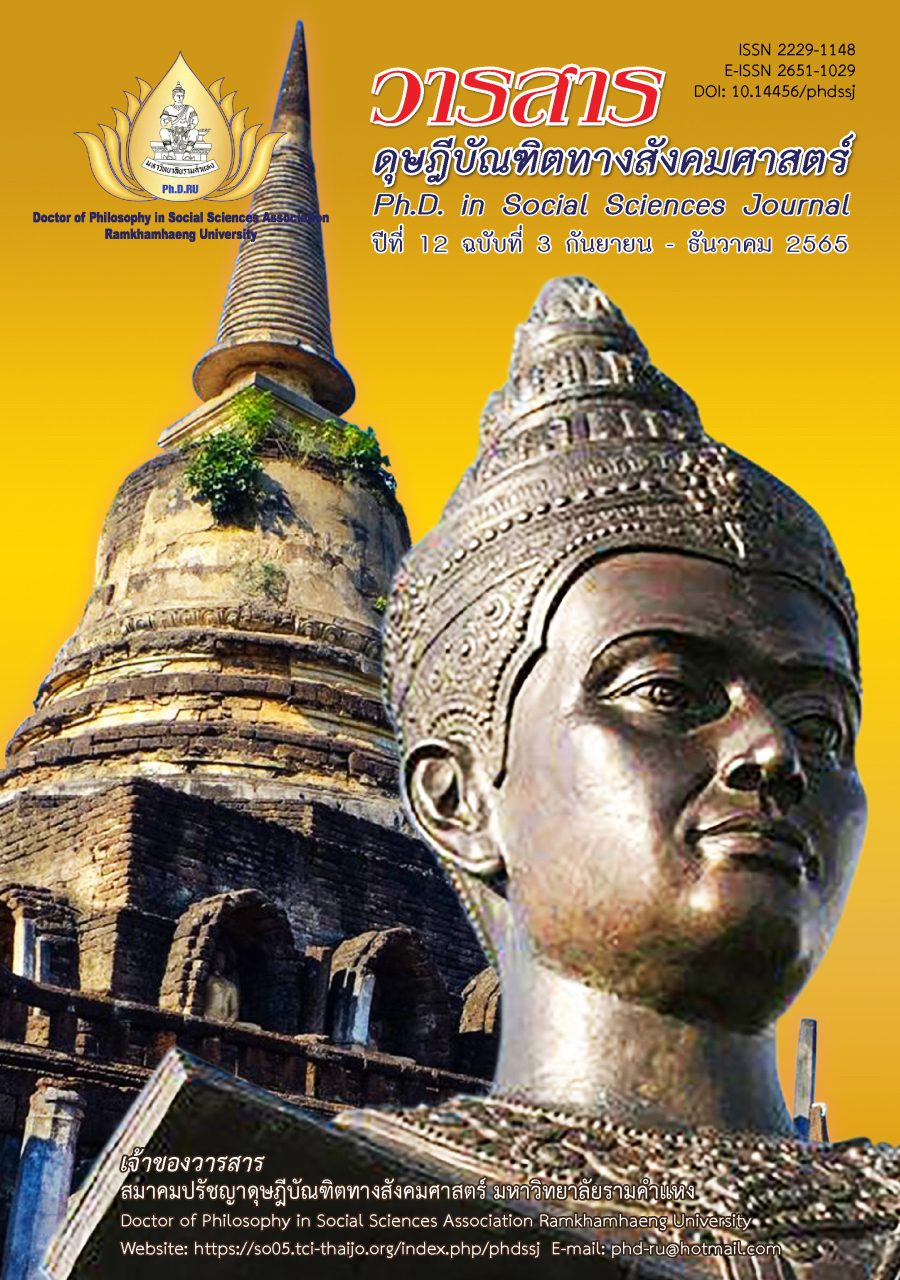The Legal Development Concerning the Civil Dispute Mediation in The Courts of Justice
Main Article Content
Abstract
This research aims to study: (1) the theoretical concepts of the civil dispute mediation in The Courts of Justice; (2) the problems and causes of legal complications concerning the civil dispute mediation in The Courts of Justice; (3) the law and civil dispute mediation of foreign countries and; (4) the proposals of the legal concepts to properly and efficiently develop the civil dispute mediation in The Courts of Justice. The researchers applied the method of qualitative research by using the following means of data collection, namely, documentary research, in-depth interview of 50 people and data analysis by means of content analysis and comparison.
The results of the research reveal that: (1) the theoretical concepts which lead to the success of the civil dispute mediation are, namely, the conflict theory, negotiation theory, justice theory and Buddhism theory; (2) the absence of parties to participate in the mediation process, the delay of delegation to the mediation, the large number of petty and consumer cases which are unable to be settled within a day and the inappropriate qualifications and remuneration of mediators cause problems to the civil dispute mediation in The Courts of Justice; (3) the courts in the United States and Singapore are empowered to refer cases to private mediation organizations, while the courts in Australia have authority to order parties to attend mediation process before proceeding the trials and; (4) there should be amendments of the relevant mediation law and regulations as well as the prescription of new regulation by the Judicial Administration Commission in order to enhance the civil dispute mediation in The Courts of Justice.
Article Details

This work is licensed under a Creative Commons Attribution-NonCommercial-NoDerivatives 4.0 International License.
Academic articles, research articles, and book reviews in the Ph.D. in Social Sciences Journal are author’s opinions, and not the publisher’s, and is not the responsibility of the Ph.D. in Social Sciences Journal Philosophy Association, Ramkhamhaeng University. (In the case that research is done on human, the researcher has to be trained in Ethics for Doing Research on Human Training and has to produce the evidence of the training).
References
Civil Court. (1996). Court mediation techniques. Athataya. [In Thai]
Fisher, R., Ury, W., & Patton, B. (1991). Getting to yes: Negotiating agreement without giving in. Houghton Mifflin Harcourt.
Jitthamma, A. (2008). The development of the mediation system in The Court of Justice in Thailand. Doctoral Dissertation of Philosophy (Public Administration), Ramkhamhaeng University. [In Thai]
Mahachulalongkornrajavidyalaya University. (2009). Manual of dharma and dharma studies for bachelor. Thai Rieone Printing: Bangkok. [In Thai]
The Office of the Judiciary. (2012). Conflict management and dispute resolution. Tanapress. [In Thai]
The Office of the Judiciary. (2017). Annual judicial statistics of the court of first instance of Thailand, B.E. 2556-2559. Author. [In Thai]
Piyamanotham, P. (2011). Indicators of efficient mediator characteristics for resolving workplace conflicts in private organizations. Doctoral Dissertation of Philosophy (Industrial and Organizational Psychology), Ramkhamhaeng University. [In Thai]
Ury, W. L., Brett, J. M., & Goldberg, S. B. (1988). Getting disputes resolved. Jossey-Bass.
Woraseangsuk, J. (2013). Classical sociological theory. M&M Laser Print. [In Thai]
Wongkomolchet, D. (1981). Political and social theory. Bopit Printing. [In Thai]


